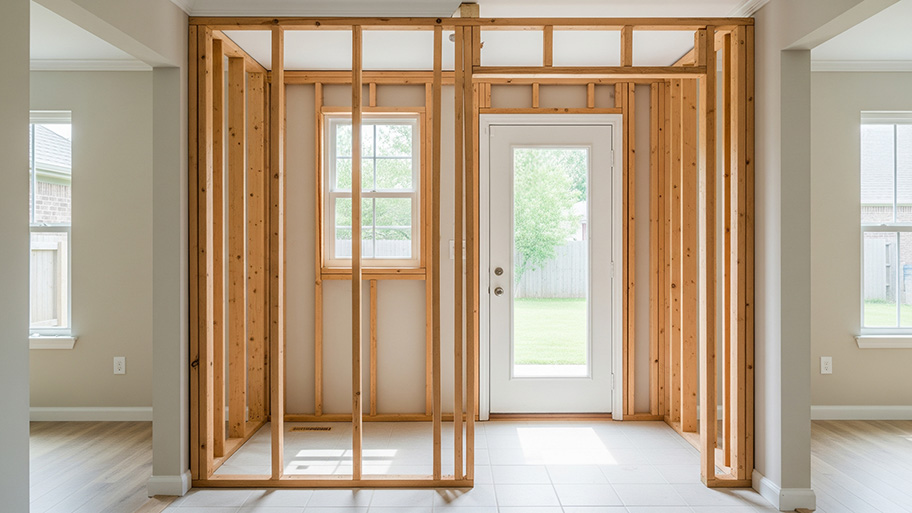
Sometimes, all your home needs is a new wall to make a room or provide an updated function to an existing space. Learn how much it costs to install a new wall.
Spot this red flag and don’t sign away your liability rights when hiring a contractor


A waiver of liability request may be a red flag.
A thorough contract protects everyone involved.
Do your due diligence before hiring a contractor.
Check license statuses and customer reviews before signing a contract.
Keeping accurate records in case of any disputes.
Securing a reliable, reputable contractor for a home project can sometimes take awhile, and it’s always a relief when you find someone you trust. The right person for the job has good references, is open about costs and deadlines, and keeps you updated on the progress. But before jumping into that kitchen renovation or basement remodel, it’s important to have the correct legal documents in place before any work begins. Knowing that everyone has a safety net of protection—like in the event of a job-site accident—means that all parties involved can feel comfortable moving forward. A document that may be discussed is a contractor liability release form. Read on to determine if you should sign a liability release agreement.
A liability release form, or waiver, is a legal document that states a participant (such as a customer) accepts all risks and agrees to waive any liability for damages associated with potential dangers. For example, if you decide to go skydiving, the company flying the plane usually requires you to sign a liability release. That way, if you are injured during the event, you cannot legally sue them later for damages.
A reputable contractor will likely never request that homeowners sign a liability waiver. If you do enter into this type of agreement, you are releasing them from any potential responsibility during and after the course of your project. This can lead to big problems down the road in any instances of property damage, shoddy work, or if the job is left unfinished. This is particularly true for most home projects, such as bathroom remodels, roofing, or structural additions.Instead of a waiver of liability, the best protection is a clearly defined contract that covers all necessary information and expectations.

While you may want to pass on any contractor who requests a signed liability waiver, there are several components that a secure agreement should include. Though it might be tempting to skim through a contract without thoroughly reading it, take the time to ensure it includes these essential details:
Contractor name and contact information
Homeowner name and contact information
Statement of relationship
Requirements for proper licenses, permits, and insurance
Project description
Payment and billing terms
Responsibilities of each party
Project timeline and deadlines
Termination conditions
Non-disclosure terms
Any applicable confidentiality clauses
Before you enter into a written agreement, confirm that your prospective contractor has all the correct documents in place. Some important things to review before signing a contract (and request written proof of):
Are you licensed to perform this type of work?
Do you have general liability insurance?
Do you have professional liability insurance?
Do you have workers’ compensation insurance?
Are you bonded?
Your state’s consumer protection agency is the best place to start. Use these resources to verify that the business is legal and check for any complaints lodged by past clients.
Using the Angi License Check, you can look up license requirements by state and verify that your contractor is carrying the correct license.
When general contractors begin a home project, they often hire subcontractors for different tasks. Confirm that subcontractors are also covered under the contractor's insurance plans.
No matter how wonderful your contractor is, you’ll still want to keep accurate records of the work that was performed. If any issues arise, having a record of all communications in written form can help clarify misunderstandings and make sure the project keeps moving in the right direction. Some important things to keep track of:
Have copies of all signed contracts and insurance policies
Take photos as the project progresses, particularly if anything looks off
Document questions or concerns via written messages with your contractor
Customers have the right to be completely satisfied with the work performed, so be honest with your contractor if you have any questions or concerns. They will likely want to make things right before wrapping up the job and asking you for a positive review.
From average costs to expert advice, get all the answers you need to get your job done.

Sometimes, all your home needs is a new wall to make a room or provide an updated function to an existing space. Learn how much it costs to install a new wall.

Winterizing a house depends on its type, size, location, and more. Our guide breaks down how much it costs to winterize a home.

Home elevator costs depend on the size and type of lift, if it needs retrofitting, and the number of floors. Our guide outlines all residential elevator costs.

As you ring in the new year, you may wonder: What are the top home improvement ideas of 2025? Read on for a full breakdown of in-demand projects on the horizon.

Discover the average home elevator maintenance cost, key price factors, and expert tips to help you budget for safe, reliable elevator upkeep in your home.

Paperwork is a critical part of any home renovation, helping to protect you and your home from any problems that arise during the project. Learn about all the paperwork you should receive from your contractor for a smooth renovation.